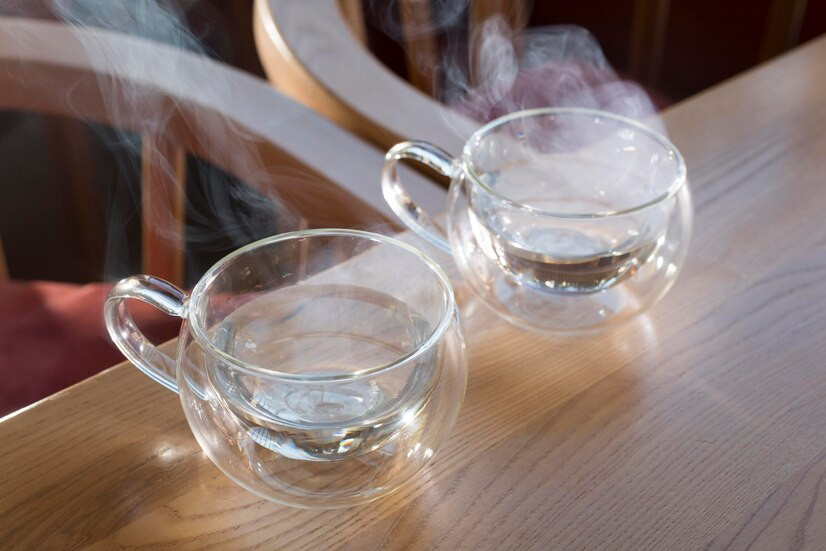Drinking warm beverages can help relax your throat. However, research has shown that drinking excessively hot beverages increases the risk of developing esophageal cancer. What is the link between drinking hot beverages and esophageal cancer? Check out the review in the following article!
The link between drinking hot beverages and cancer
According to Verywell Health, drinking extremely hot drinks, such as tea, in large quantities can frequently increase the risk of developing esophageal cancer by up to 60%. This is something to be aware of because esophageal cancer has a fatal prognosis.
The esophagus is a muscular tube connecting the mouth and stomach. Food and drink will pass through the mouth and esophagus before reaching your stomach. When you drink very hot beverages or eat hot food, the heat can damage the cells in those areas. Damaged cells will then repair themselves; however, if this happens frequently, cell regeneration can lead to mutations that increase the risk of cancer.
In 2016, the WHO issued a warning that hot liquids may be carcinogenic. The hotter the beverage, the higher the risk of developing esophageal cancer. The warning applies specifically to liquids, particularly tea, consumed at temperatures above 70 degrees Celsius. As a result, it is not recommended to consume hot beverages or soupy foods at extremely high temperatures.
However, consuming hot beverages alone is not the only risk factor for cancer. The habit of drinking hot drinks, combined with other risk factors, can increase the risk of cancer. Some risk factors to look out for include:
- Smoking or smoking sheesha
- Drinking alcoholic beverages
- Chewing tobacco
- Unhealthy diet
- Exposure to air pollution
Symptoms of esophageal cancer
Esophageal cancer symptoms are rarely visible in their early stages. They usually appear once the disease has progressed to an advanced stage. They include:
- Difficulty swallowing
- Chest pain or burning in the chest (heartburn)
- Cough or hoarseness
- Sudden weight loss
- Indigestion such as diarrhea or vomiting
- Black stools due to bleeding from the esophagus
If you notice any worrying signs or symptoms of esophageal cancer, you should see a doctor right away.
Can esophageal cancer be prevented?
There are numerous risk factors for developing esophageal cancer. Some of these can be controlled, while others, such as genetics, are more difficult to manage. Some steps that can be taken to lower the risk of esophageal cancer include:
- Quit smoking
- Avoiding activities that use tobacco
- Reducing consumption of alcoholic beverages
- Limiting exposure to chemicals or toxins
- Not drinking very hot beverages
- Reducing foods that are processed directly over fire, as well as foods that are carcinogenic
- Eating lots of fruits and vegetables
Drinking hot drinks relaxes your throat, but beverages that are too hot can damage cells in the mouth and esophagus. Wait for the drink's temperature to drop to lukewarm before drinking slowly.
If you need medical advice or consultation, you can either visit a doctor or make use of the consultation features that are available in the Ai Care application by downloading the Ai Care application from the App Store or Play Store.
Looking for more information about other diseases? Click here!
- dr Nadia Opmalina
Burch, K. (2024). An Overview of the Link Between Hot Tea and Esophageal Cancer. Available from: https://www.verywellhealth.com/hot-tea-and-esophagael-cancer-5194530#
Memorial Sloan Ketetring Cancer Center. Esophageal Cancer Risk: The Truth About Hot Drinks Like Coffee and Tea. Available from: https://www.mskcc.org/news/burning-issue-truth-about-hot-drinks-and-esophageal-cancer-risk
Luo, H., & Ge, H. (2022). Hot Tea Consumption and Esophageal Cancer Risk: A Meta-Analysis of Observational Studies. Frontiers in nutrition, 9, 831567. https://doi.org/10.3389/fnut.2022.831567
Iftikhar, N. (2019). Hot Tea and Esophageal Cancer: How Hot Is Too Hot?. Available from: https://www.healthline.com/health/cancer/hot-tea-cancer
Mayo Clinic. Esophageal Cancer. Available from: https://www.mayoclinic.org/diseases-conditions/esophageal-cancer/symptoms-causes/syc-20356084
Cleveland Clinic. Esophageal Cancer. Available from: https://my.clevelandclinic.org/health/diseases/6137-esophageal-cancer












